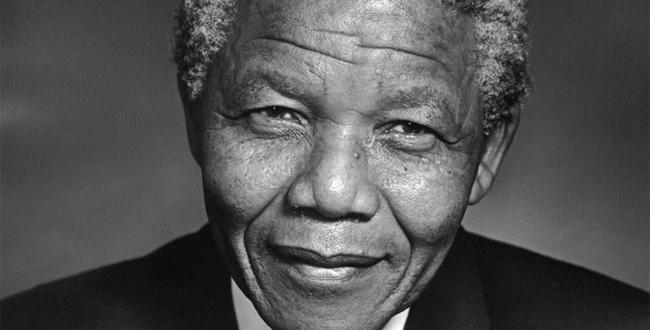As Mandela spends another day in hospital, am prompted to write about him, to honour him in a small article, really it is the least I could do to acknowledge the force that he is in today’s world. Today more than ever, the Mandela’s human mortality confronts us, but our souls are balmed by the immortality of his legacy. We know, that Mandela has made enough an impact on this planet, that his legacy is embossed on granite.
The question I ask myself quite often is, how did Mandela immortalize his legacy? How did he and why did he outshine his contemporaries? Why don’t we have a few more Mandela’s on this continent, but have one too many; Mugabe’s, Ghadaffi’s, Moi’s, Mobutu's and such other ilk that have found themselves at the helm of leadership in Africa. Why is Africa always deprived of quality altruistic leadership? Why does Africa lack leadership that is in synergy with the; aspirations, dreams and aspirations of the Africa people? Why is leadership that liberates such had to come by in Africa?
Bad leadership in Africa permeated Africa right at the founding of independent Africa. At the independence of most African countries and perhaps for sentimental reasons Africans failed to realize that the best freedom and anti-colonial leaders and fighters weren’t necessarily the best leaders to guide independent Africa into the future. These independence leaders entered the leadership fray with belligerent attitudes that characterized Africa’s independence struggle. Especially because the independence of Africa happened in a milieu of a cold war duo polar world, African independent leaders almost with little exception had a soft spot for socialism. This sort of overriding; anti-imperial, anti-colonial sentiment at Africa’s independence nudged many African leaders to commit errors of lack of foresight. Most of them like; Mwalimu Julius Nyerere and Kwame Nkrumah took their countries down a socialist spiral the effect of which these countries are still reeling from to this day.
Perhaps a more telling fact is that first generation African leaders were not replaced by level headed and visionary leaders, especially in cases where these first generation leaders were thrown out of office in coup de tats. Africa therefore has been suffering from a permanent and endless transition of bad leadership after bad leadership. In Kenya a Jommo Kenyatta regime riddled with so many political assassinations was succeeded by a Daniel Moi regime that took repression to the next level. Next door neighbor Uganda has had its fair share of anarchic leadership, from the Milton Obote to the out rightly canal and callous Idi Amin and now Museveni has started exhibiting the same negative qualities that his predecessors were so often fond of, notably the repression of the opposition and the media.
African leaders from the Atlas Mountains in Morocco to the Table Mountains in South Africa, from the Gold Coast in the East to the Horn of Africa in Somalia have one ubiquitous trait that sets them apart from world leaders elsewhere, infatuation with the self. African leaders love themselves and they almost undoubtedly force their subjects to love right through their gullets. Leaders like Mobutu had to coin phrases like, ‘Mobutu Sese Seko Nkuku WA Zabanga’ which meant the all conquering warrior who goes from one triumph to the other. All over Africa, African leaders coined to perpetuate the myth of infallibility revolving around them. Julius Nyerere on his part started calling himself Mwalimu which means teacher in Swahili, in an attempt to gain reverence from his citizens.
Mandela is a rarity in African leadership in that he does not suffer from the same infatuation with himself. He was and still is very selfless leader, he gave himself to freedom, he said, “I have cherished the ideal of a democratic and free society. It is an ideal which I hope to live for and to achieve. But if needs be, it is an ideal for which I am prepared to die.”
Mandela had a pretty clear vision of what he wanted South Africa to be, he did not antagonize his country like so many African leaders before him. “Reconciliation and nation-building would remain pious words if they were not premised on a concerted effort to remove the real roots of past conflict and injustice.”
Mandela deserves to be placed on a pedestal, he deserves to be held as an epitome and an exemplar of good leadership in Africa. That aside, Africa and the world have to come to terms with Mandela’s mortality. For even forever his legacy shall remain immortal.
We have to let Mandela go, may be that way new dispensations of Africa leadership shall be unlocked.



